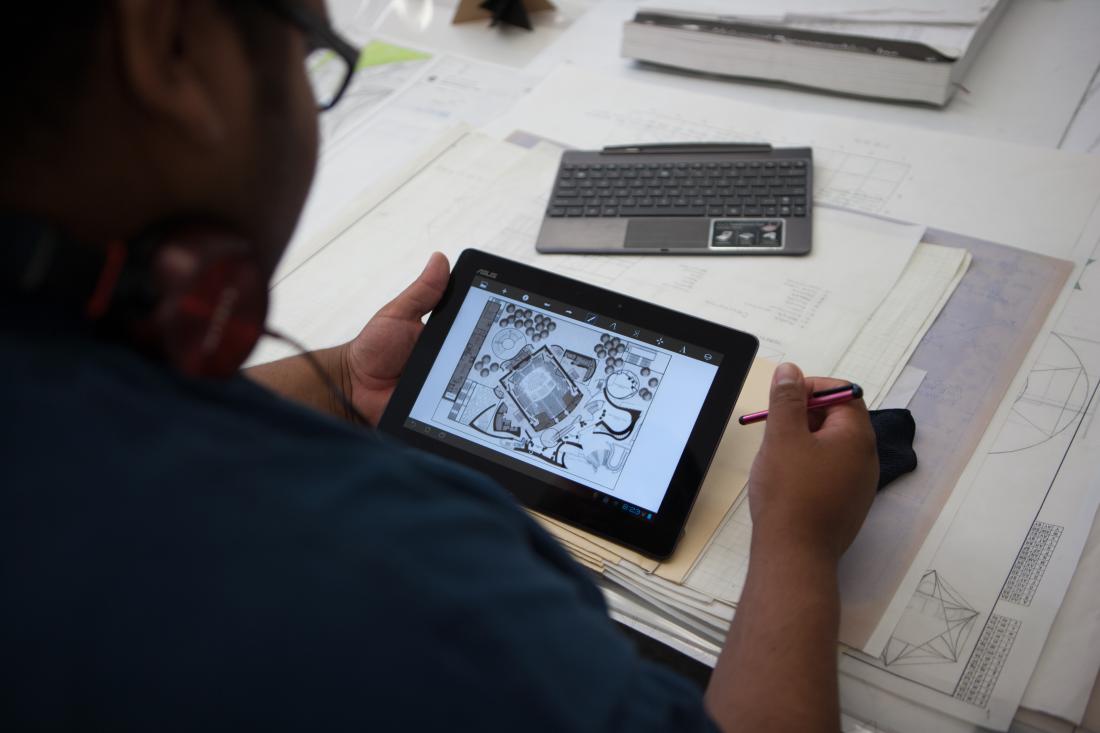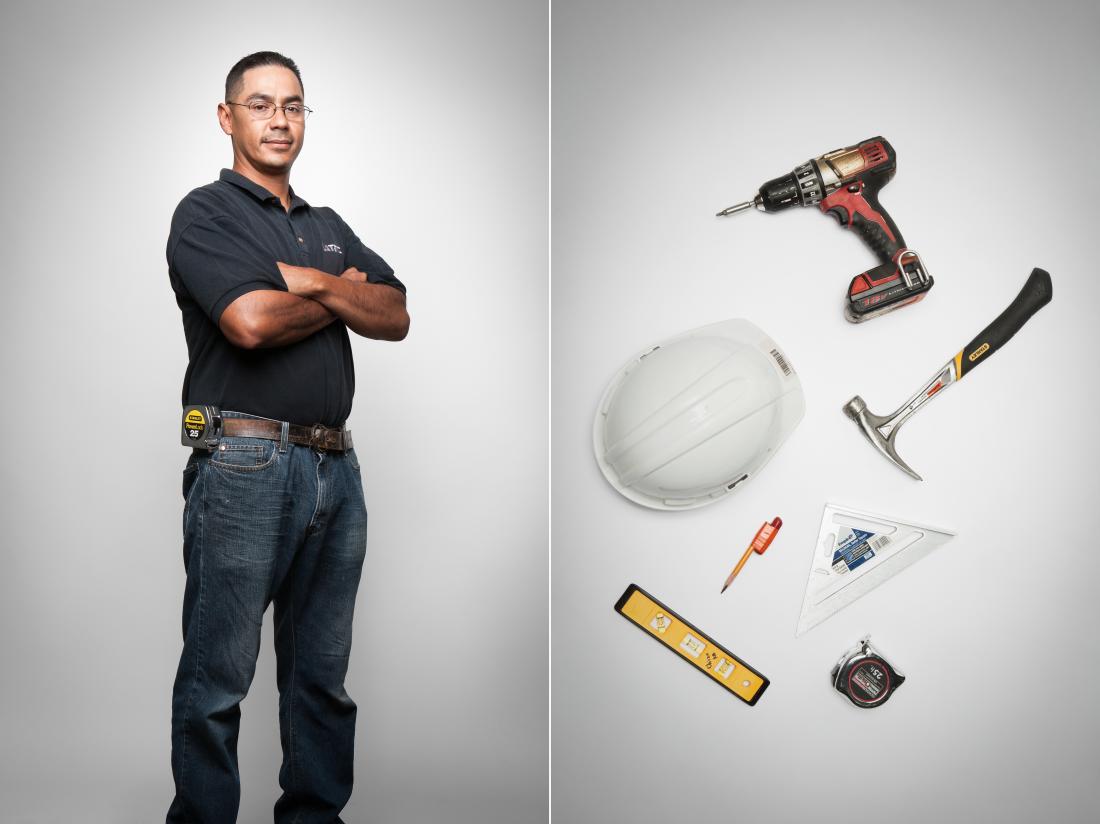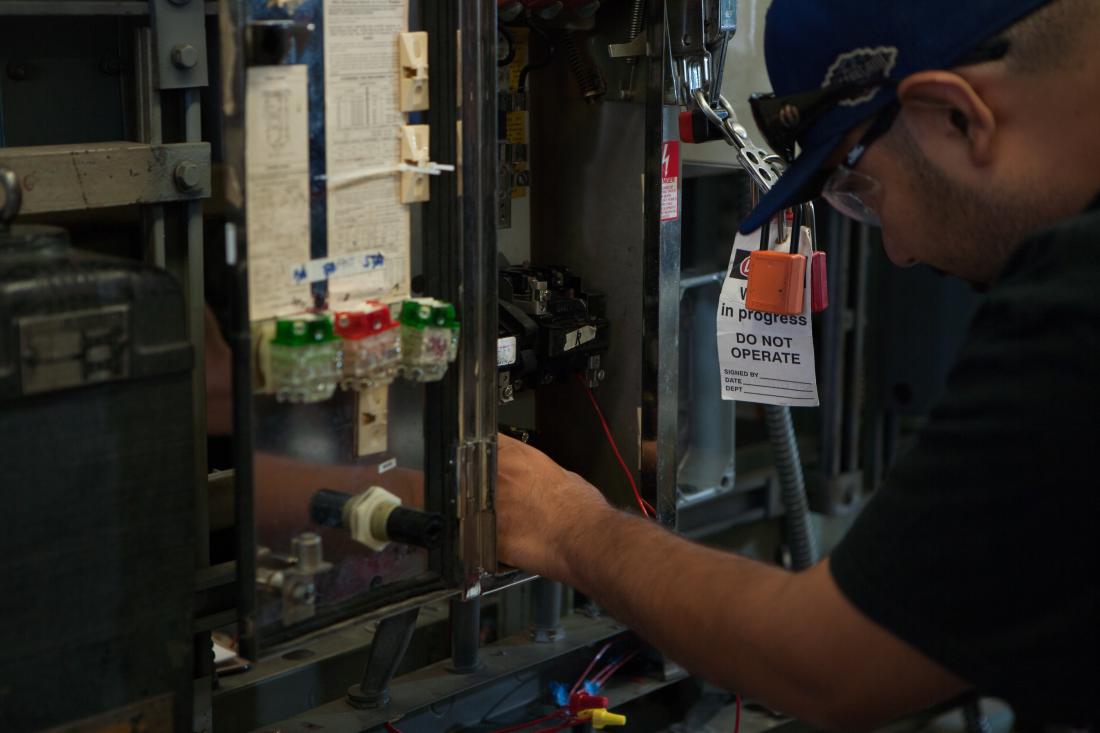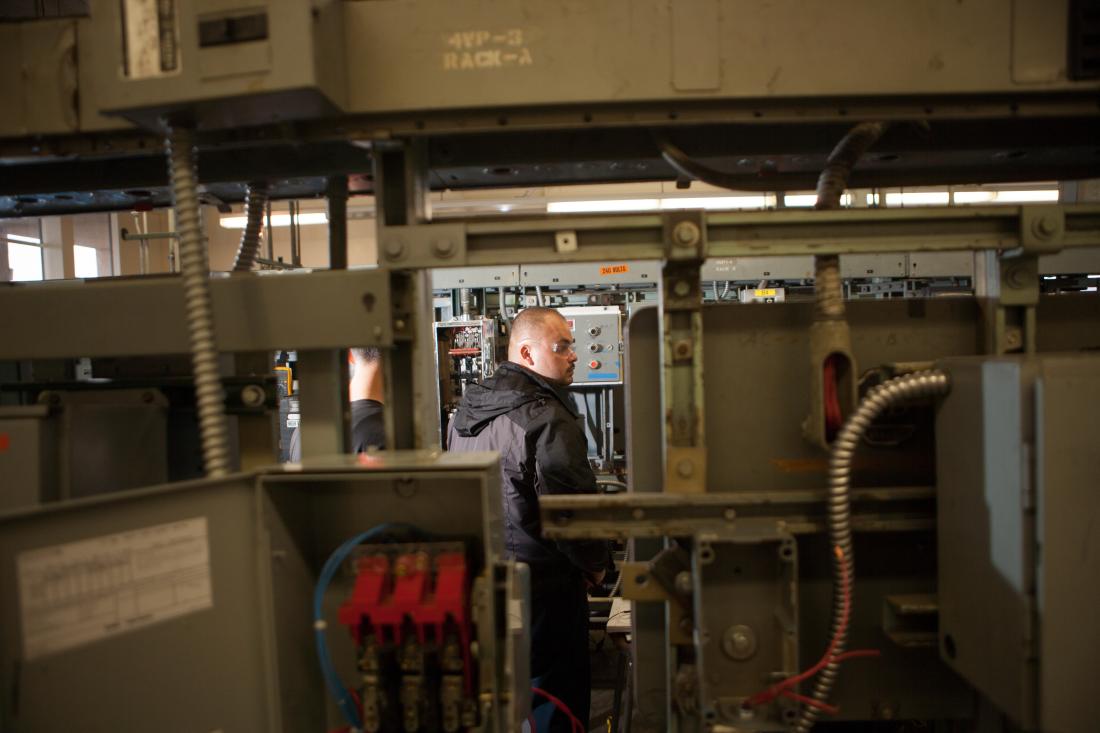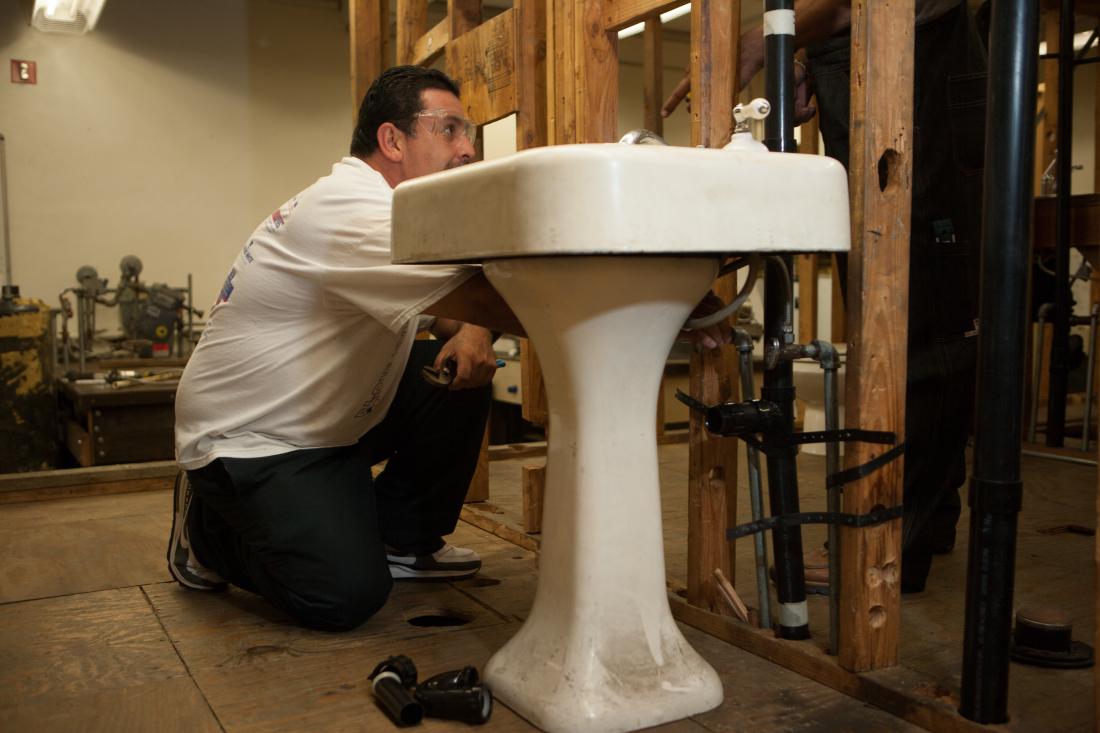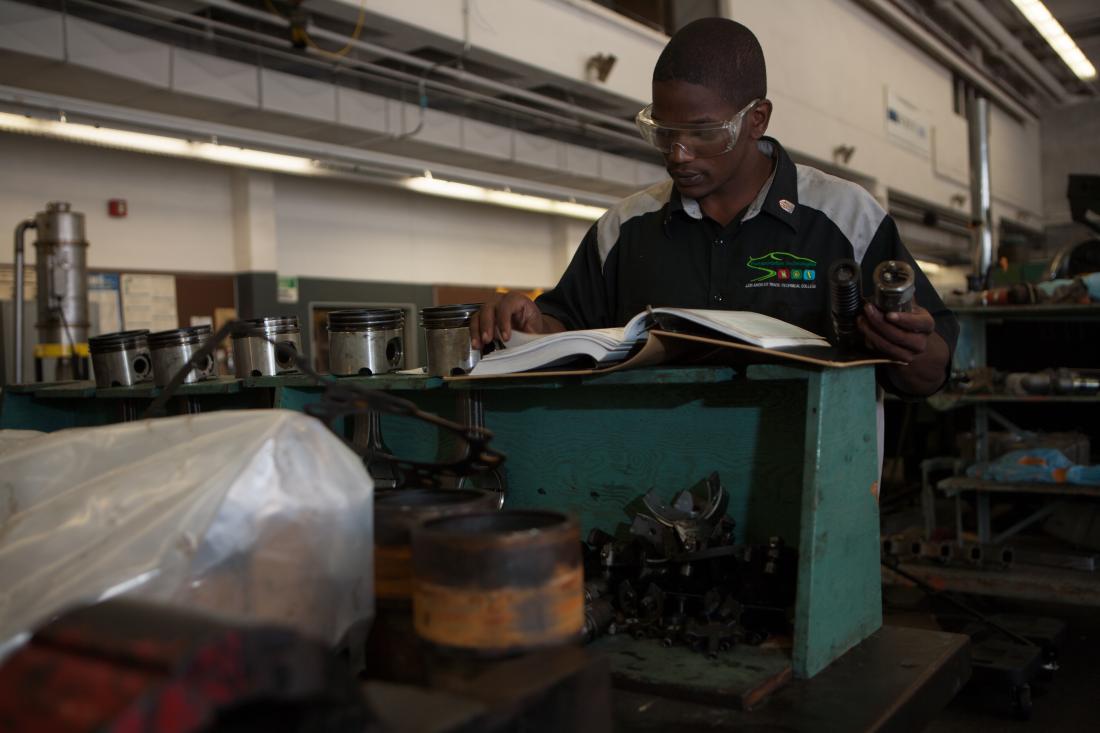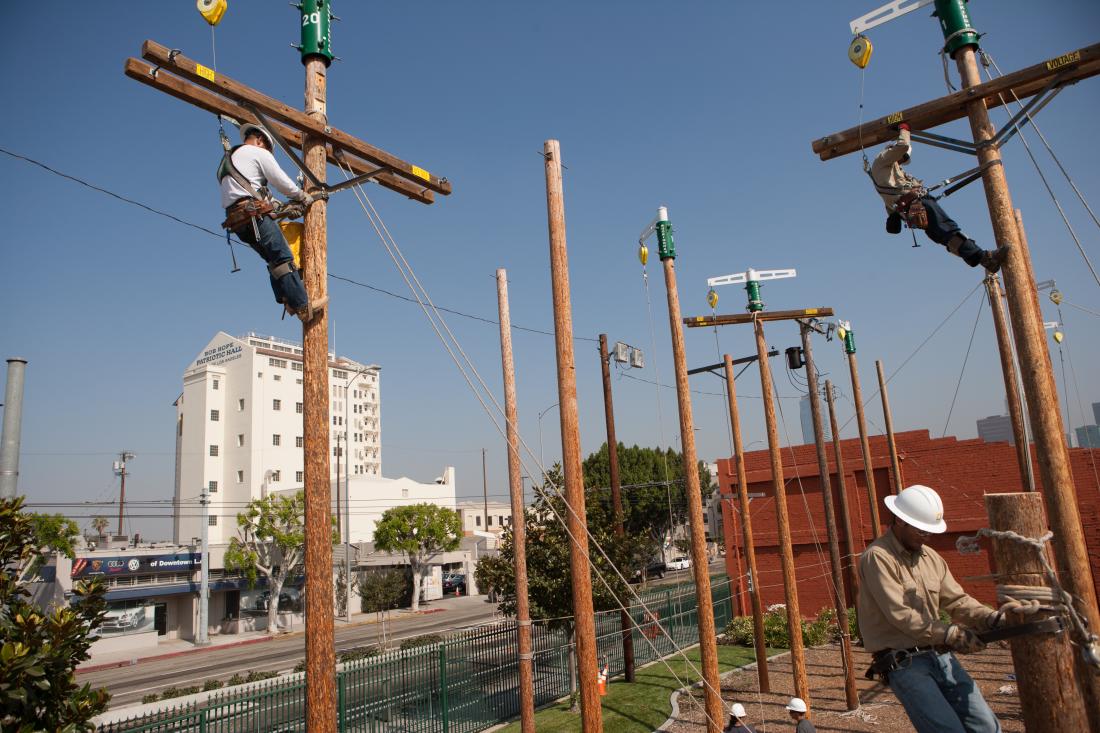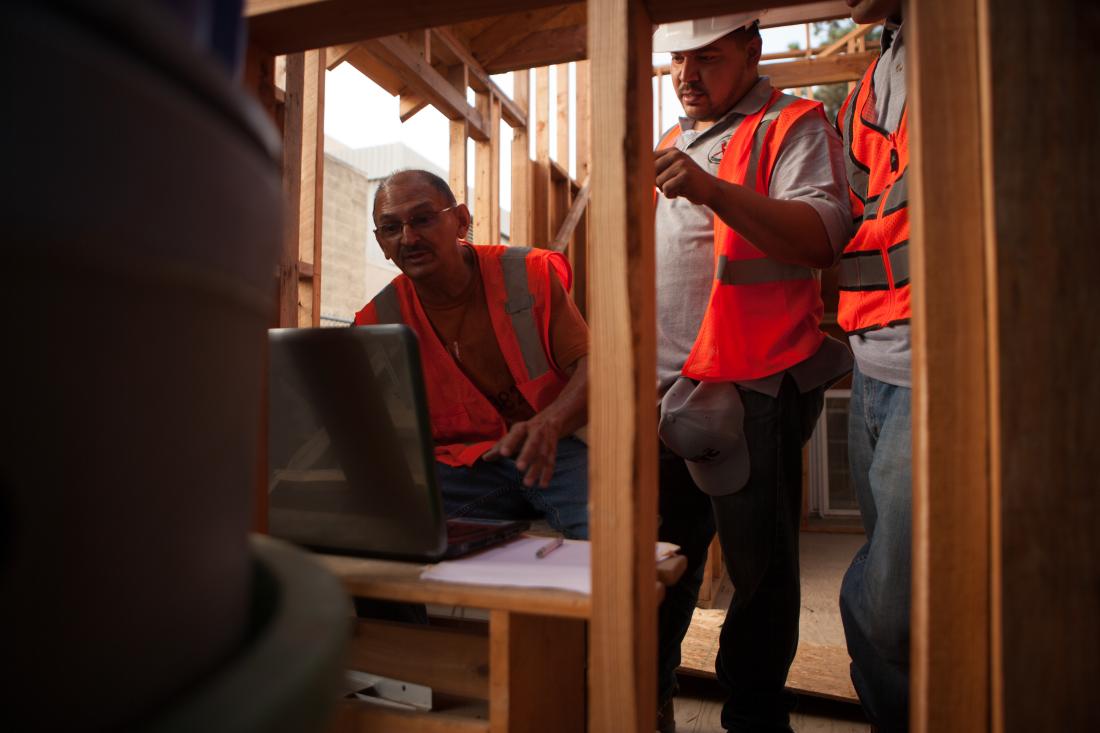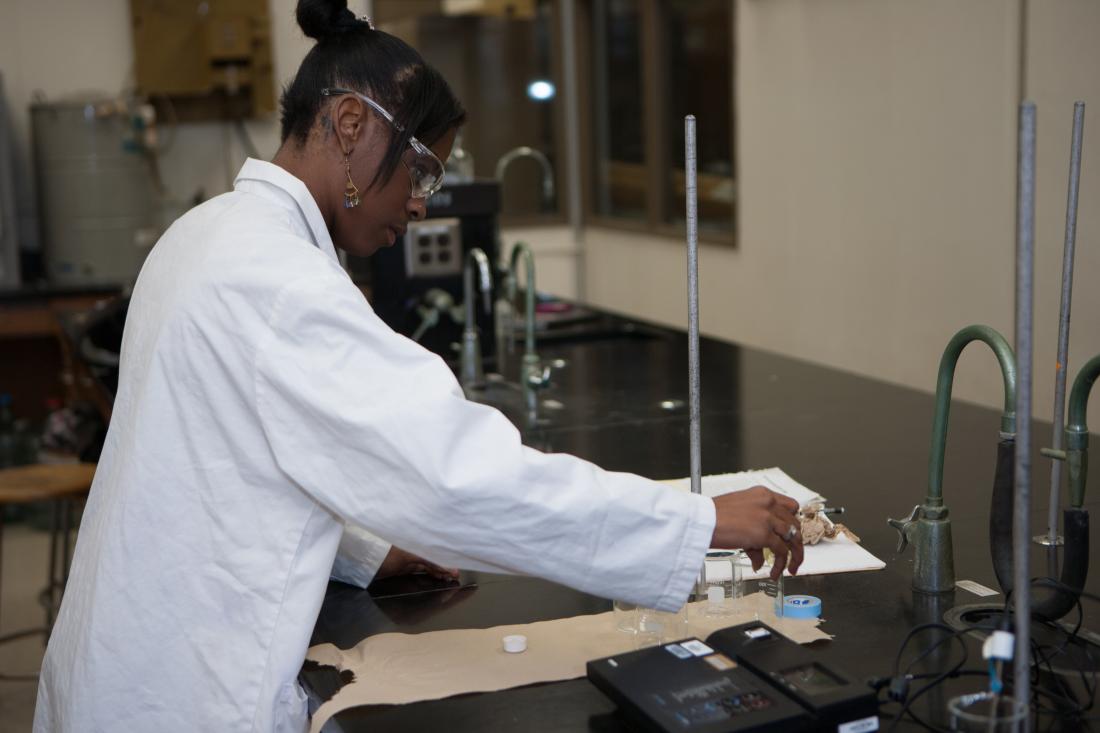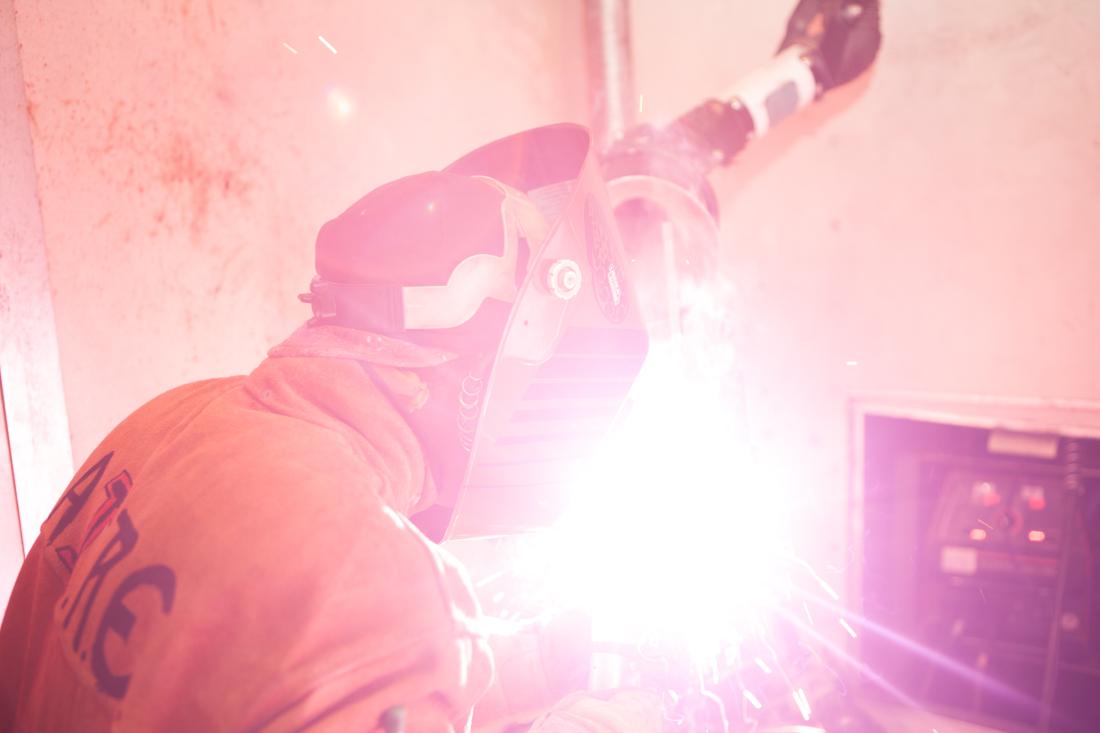CMU Certificates & Degrees
Important Program Directions
Powerline Mechanic Training Program Inform PDF
Pre-Enrollment Physical Screening PDF
Program List
Program Preview Tiles
Our courses are integrated and comprehensive, covering four clusters of study: 1) design/space-planning/programming; 2) construction documents/BIM; 3) building systems/materials/historical context; and 4) sustainable tools, such as BIM, GPS, CAD, GIS, 3-D modeling, and simulation. Every class includes training in organizational skills, time management, teamwork, communication and digital file management, and the equipment used in the classroom is the same found in professional offices.
In the architecture design program, students learn additional skills, such as prototyping, visualization, conceptualization, 3-D composition, lighting, proportion, sketching and modeling.
This critical foundational knowledge can be applied to the fields of industrial design, toy design, furniture design, interior design, landscape architecture, set design and virtual reality spaces.
By fulfilling the program requirements, students will have the skills needed to enter the field as an Architectural Technician who is both a problem solver and an integral part of the design process. Students will master the skills necessary to work in the construction, drafting, estimating, building inspection, civil, electrical, mechanical and structural engineering, construction computer rendering, and computer-aided drawing arenas. General education classes provide a well rounded education, imparting the knowledge and skills needed to successfully participate in all aspects of society.
By fulfilling the program requirements, students will have the necessary knowledge and skills for a career as a Carpenter in the Construction or Maintenance arena. The construction, installation, and repair of structures and fixtures made from wood and other materials, working from blueprints, layout, measuring, marking, and arranging materials in accordance with local building codes, cutting and shaping wood, plastic, fiberglass, or drywall using hand and power tools, joining materials with nails, screws, staples, or adhesives are just some of the skills that will be mastered during this program.
Students enrolling in this program should be able to commit to full time student status, which is approximately 24 hours per week in the classrooms and laboratories, plus at least 12 hours of homework every week. This time commitment is necessary to allow for hands on training in the laboratory applications used during the course of instruction.
The Associate in Arts degree is an evenings only course of study designed for individuals, currently working in the electrical field, who want to improve or expand their skills. Due to the limitations of the student’s available evening hours, much of the hands on laboratory component is assumed to be provided at the student’s place of employment. Depending on availability, the Associate in Arts degree may require more time to complete. See the Department Chair for details prior to enrolling.
By fulfilling the program requirements, students will have the necessary knowledge and skills for a career in Residential, Commercial, and Industrial Construction and Maintenance of Electrical Systems. Electrical theory, electrical controls, conduit installation, blueprints, low voltage systems, maintenance practices, equipment installation, etc. are just some of the skills that will be mastered during this program.
A general maintenance worker’s typical duties include troubleshooting and fixing faulty electrical switches, repairing air-conditioning motors, and unclogging drains. In addition, newer buildings sometimes have computer-controlled systems that allow maintenance workers to make adjustments in building settings and monitor for problems from a central location; for example, they can remotely control light sensors that turn off lights automatically after a set amount of time or identify a broken ventilation fan that needs to be replaced.
General maintenance and repair workers inspect and diagnose problems and determine the best way to correct them, frequently checking blueprints, repair manuals, and parts catalogs. They obtain supplies and repair parts from distributors or storerooms. Using common hand and power tools such as screwdrivers, saws, drills, wrenches, and hammers, as well as specialized equipment and electronic testing devices, these workers replace or fix worn or broken parts, where necessary, or make adjustments to correct malfunctioning equipment and machines.
General maintenance and repair workers also perform routine preventive maintenance tasks to ensure that machines continue to run smoothly, building systems operate efficiently, and the physical condition of buildings does not deteriorate. Following a checklist, they may inspect drives, motors, and belts, check fluid levels, replace filters, and perform other maintenance actions. Maintenance and repair workers keep records of their work.
The “Certified Steam Boiler License” is a specialized certification required for many maintenance workers. LATTC offers a Certificate of Achievement-Steam Plant to address this need. The core of the program is designed to prepare students to take the Boiler/Steam Plant certification exam, while the remainder is structured to create students who possess an array of skills which would be transferable to a variety of job settings, creating a highly capable general maintenance worker.
By fulfilling the program requirements, students will have the necessary skills for entry and mid level jobs in the general maintenance industry. This program prepares the student for basic electrical, heating and refrigeration, plumbing, and carpentry work, and to pass the “Certified Boiler/Steam Plant” License exam.
By fulfilling the program requirements, students will have the necessary knowledge and skills for a career in residential, commercial, and industrial service and repair or construction plumbing. Reading of blueprints, layout, estimating, installation of piping systems and fixtures, repair of supply and waste water systems are just some of the skills that will be mastered during this program.
The coursework in this program meets the requirements for entry into the plumbing trade.
Note: Students enrolling in this program should be able to commit to full-time student status, which is approximately 24 hours per week. This time commitment is necessary to allow for hands-on training with the laboratory applications used during the course of instruction.
By fulfilling the program requirements, students will have the necessary knowledge and skills for a career in residential, commercial, and Industrial service and repair of air conditioning, heating and refrigeration systems. Environmental Protection Agency (EPA) refrigerant certification will be received. Electrical controls, piping installation, compressor installation and repair are just some of the skills that would be mastered during this program.
The Water Systems Technology program at LATTC offers students a choice of two concentrations within water systems industry
- WASTEWATER OPTION offers courses focusing on preliminary, primary, secondary, and tertiary treatment systems as well as disinfection methods, solids treatment, and solids and effluent disposal practices.
- SUPPLY WATER OPTION offers courses focused on the operation and design of water systems, wells, pumps and meters; water treatment for potable water; and technical phases of automatic controls, including power and code considerations

